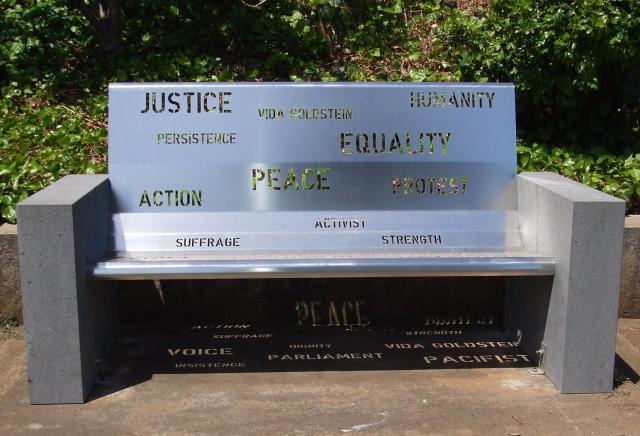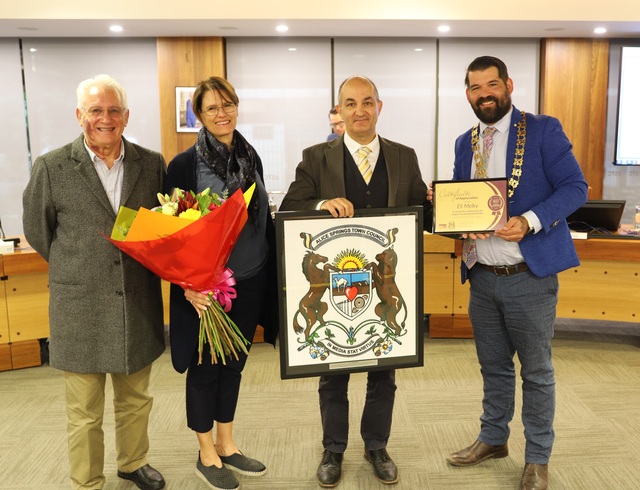One of Portland’s most iconic women and leaders, Vida Goldstein, has been further acknowledged thanks to a new partnership with Glenelg Shire Council and Her Place Museum, Melbourne.
Council is delighted to be part of Finding Her, a new initiative by Her Place Museum.
Launched this month, Finding Her is Australia’s first interactive state-wide map highlighting locations around Victoria which commemorate inspiring women and gender diverse people.
The Finding Her project is both a virtual and physical tour. Through QR codes placed at sites across the state, the project connects actual sites of recognition such as statues, murals and monuments to further information online that tells the stories behind the monuments.
Portland’s contribution; At Last, A Seat for Vida! by Portland artist Carmel Wallace, is one of the most remote regional Victorian monuments included in the interactive map.
“The seat is located in Portland’s historic precinct on Cliff Street,” said Lauren van Katwyk, Glenelg Shire Arts and Culture Manager.
“In 2008, Portland artist Carmel Wallace was commissioned to design a seat commemorating pioneering female leader and rights activist Vida Goldstein,” she explained.
“A plaque near Carmel’s work now directs visitors to use a QR code to learn more about Vida Goldstein and her achievements.”
Vida was born in Portland in 1869 and championed peace, social justice and equal rights, going on to become the first woman in the British Empire to stand for parliament. She was a woman of words, not only campaigning for parliament five times in her life, but also editing a newspaper.
Local artist Carmel Wallace said the QR code was an apt addition to her work.
“It’s so fitting that Vida Goldstein is included on the map through my sculptural work which was made to celebrate
her and what she stood for,” she said.
“It was a real honour to produce At Last, A Seat for Vida!
“I’d like to acknowledge and thank the wonderful local team who made it possible, particularly the Historic Building Restoration Committee and Lesley Jackson and Rebecca Fleming for instigating the commission and enthusiastically writing submissions; James Sinnott and Tony Rowe of Bamstone for preparing the bluestone, Roger Hampshire for laser-cutting my design and Ricky Holmes for his metal working skills and installation.
“I look forward to more people learning about Vida Goldstein and sharing her story as a result of the Finding Her project.”
At Last, A Seat for Vida was commissioned by the Historic Buildings Restoration Committee and designed by artist Carmel Wallace.








